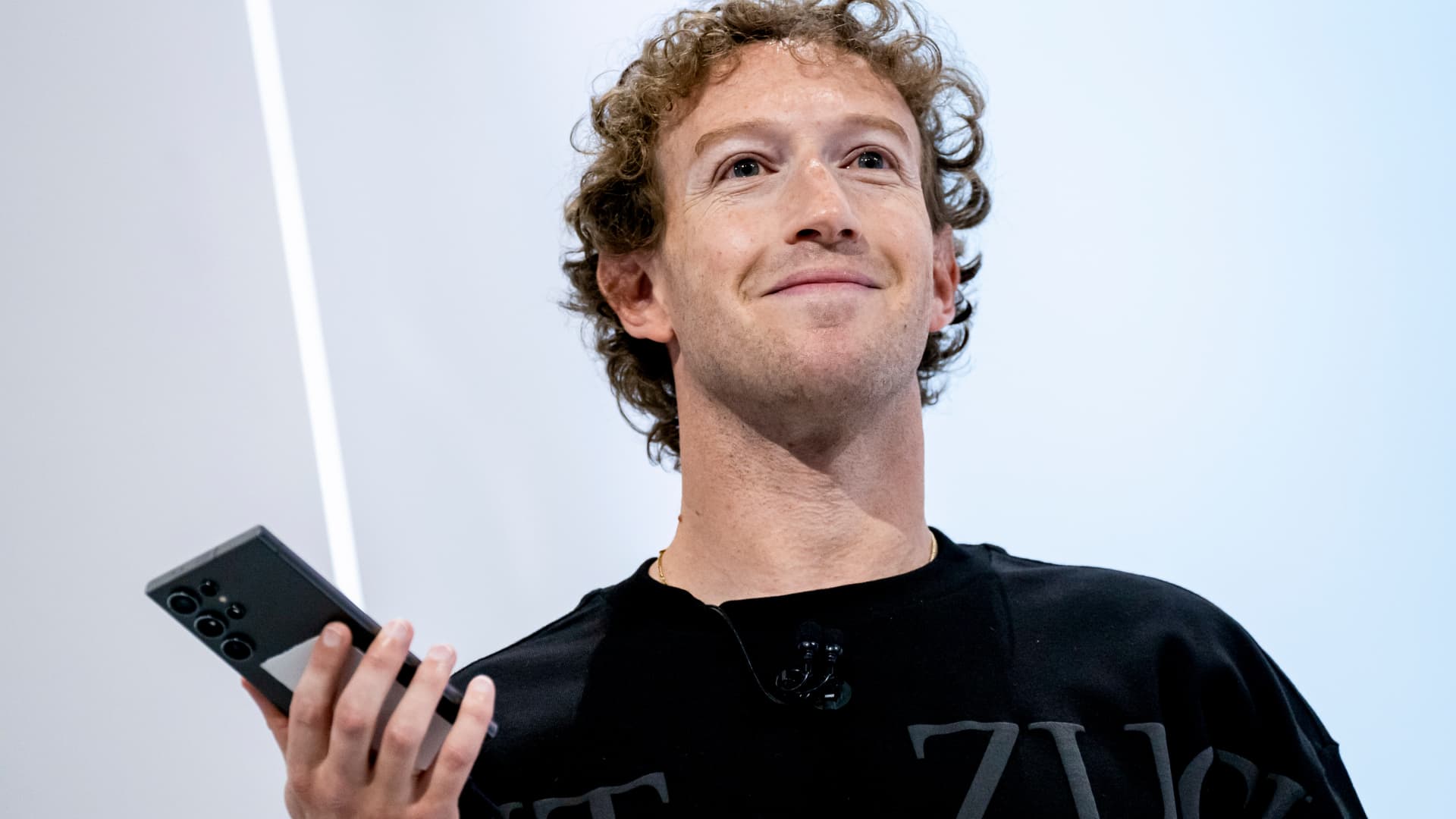Mark Zuckerberg’s Bold Critique: Is Apple’s Innovation Stalling?
In a rapidly evolving tech landscape, innovation is the lifeblood that fuels competition and drives growth. Recently, Mark Zuckerberg, the CEO of Meta Platforms Inc., made headlines with a bold critique of Apple, questioning whether the tech giant’s commitment to innovation is diminishing. His assertions suggest that Apple’s progress is hindered by arbitrary regulations, sparking a broader discussion about the future of competition within the tech industry. This commentary not only sheds light on Apple’s current trajectory but also raises essential questions about the company’s ability to maintain its innovative edge.
The Context of Zuckerberg’s Critique
Zuckerberg’s remarks came during a conference where industry leaders gathered to discuss the future of technology. He pointed out that while Apple has historically been a pioneer in consumer electronics, there seems to be a stagnation in its innovation pipeline. This critique is significant, especially considering Apple’s reputation for pushing the envelope with products like the iPhone and the iPad. However, the recent launches have not been as groundbreaking as previous ones, leading many to wonder if Apple is becoming complacent.
Are Regulations the Barrier to Innovation?
One of Zuckerberg’s key points revolves around the idea that Apple is constrained by “arbitrary regulations” that stifle creative solutions. This assertion resonates in a time when tech companies face increasing scrutiny from governments and regulatory bodies worldwide. Here are some aspects to consider:
- Privacy Regulations: Apple has positioned itself as a champion of user privacy, implementing features that limit data tracking. While this enhances user trust, it also complicates app development and marketing, potentially hindering innovation.
- App Store Guidelines: Apple’s strict App Store policies can be seen as a double-edged sword. They ensure quality and security but can also limit the types of applications that developers can create. This, in turn, can stifle innovation within the app ecosystem.
- Global Compliance: As Apple operates in numerous countries, it must navigate a patchwork of regulations, which can slow down the rollout of new features and products.
These regulatory challenges could lead to a culture of caution within Apple, where the fear of potential backlash or legal issues takes precedence over bold innovation. This has led some critics to argue that Apple is prioritizing compliance over creativity.
Comparing Innovation: Apple vs. Rivals
To understand the implications of Zuckerberg’s critique, it’s essential to compare Apple’s innovation trajectory with that of its competitors. Companies like Samsung, Google, and even emerging startups are continually introducing novel technologies that challenge the status quo. For instance:
- Samsung: Known for its rapid product iterations, Samsung frequently releases innovative features in smartphones, such as foldable displays and advanced camera systems.
- Google: With its focus on artificial intelligence and software integration, Google has pushed boundaries in areas like voice recognition and smart home technology.
- Emerging Startups: Many startups are capitalizing on niche markets with disruptive technologies, showcasing creativity and agility that can sometimes exceed larger firms.
This competitive landscape raises questions about Apple’s long-term strategy. While the company has a loyal customer base and a strong brand, the risk of losing its competitive edge due to a perceived lack of innovation is palpable.
The Future of Apple’s Innovation
So, where does Apple go from here? If Zuckerberg’s critique holds merit, the company must find ways to reignite its innovative spirit. Here are a few potential pathways:
- Embracing New Technologies: Apple could invest more heavily in emerging tech sectors such as augmented reality (AR) and virtual reality (VR), areas where competitors are making significant advancements.
- Enhancing Developer Collaboration: By loosening some of its App Store restrictions, Apple could foster a more vibrant developer community that drives innovation through collaboration.
- Balancing Regulation with Innovation: Apple must navigate regulatory challenges without sacrificing its innovative core. This might involve engaging more proactively with regulators to shape policies that support innovation.
By addressing these areas, Apple could potentially regain its status as a leader in tech innovation. The company’s ability to adapt and evolve will be crucial in maintaining its competitive edge.
Broader Implications for the Tech Industry
Zuckerberg’s critique of Apple serves as a microcosm of larger issues facing the tech industry. As regulations grow stricter and competition becomes fiercer, companies must balance compliance with the need for innovation. This tension could shape the future landscape of technology in several ways:
- Innovative Ecosystems: As companies like Apple and Meta navigate regulatory waters, they may create ecosystems that prioritize innovation while adhering to compliance.
- Collaboration Over Competition: The potential for increased collaboration among tech companies could lead to shared innovations that benefit consumers and developers alike.
- Consumer Expectations: As consumers become more discerning, companies will need to prioritize transparency and ethical practices while still delivering innovative products.
Ultimately, the tech industry must find a way to foster creativity while ensuring that regulations protect consumers and promote fair competition. Zuckerberg’s remarks highlight the delicate balance that companies like Apple must maintain as they navigate these challenges.
Conclusion
Mark Zuckerberg’s bold critique questioning whether Apple’s innovation is stalling opens the door to a crucial dialogue about the future of the tech industry. As technology evolves and regulatory landscapes shift, companies must adapt to remain competitive. Apple’s ability to respond to these challenges will not only determine its future but also set the tone for the entire industry. As consumers and investors alike watch closely, the emphasis on innovation remains a vital aspect of the tech ecosystem, one that will ultimately shape the products we use and the experiences we cherish.
See more Future Tech Daily

